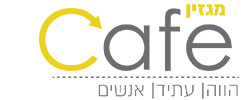Contents
The consequences are swift, and they tend to be severe. Families that intervene too early could remove a very real addiction consequence that could shift a person’s thinking and prompt that person to get help. Families that don’t interfere with that process could help the person they love. Addictionsare what makes alcohol so addictive brain disorders, and in most cases, people with addictions are simply incapable of modulating their use. When they have access to drugs, they take them, and they take all of them. Stopping the enabling cycle means respecting that addiction is a sickness and refusing to participate in it.
An intervention is not about how to control the substance user; it is about how to let go of believing you can. If you or a loved one is in need of treatment for recovery, please reach out to us today. You can contact the Finnish Student Health Service, FSHS, if you are not feeling mentally well or worried about your alcohol or drug use.
The problem is, and always has been, about the user avoiding uncomfortable feelings, things, and situations. Most people are great at providing advice when the guidance does not involve their children. For parents whose son or binge drinking alcohol, black tar colored stools, blank stare and bleeding daughter is struggling with addiction, the suggestions are often hard to hear and even more difficult to follow. Most importantly, you have to remember that you cannot rescue your son or daughter from the throes of addiction.
They should keep brochures about treatment facilities on hand, so the addicted person can peruse them on his/her own time. No parent wants to bear the brunt of their adult child’s drug addiction. However, for every young adult who is suffering from addiction, there is a parent out there wondering how they can help. Many will fall into codependent behaviors in an effort to keep their child safe, but this may only prolong a child’s addiction. Although this can be a devastating and terrifying experience for any parent, it is important to learn the difference in enabling and helping. These are just some of the many items that a parent wants to cover for their child, especially during tough times.

In Al-Anon, this is called "putting pillows under" your loved one so that they never feel the pain of their mistakes. You are providing them with a safety net that allows them to lose their job or skip work with no real consequences. John C. Umhau, MD, MPH, CPE is board-certified in addiction medicine and preventative medicine. He is the medical director at Alcohol Recovery Medicine.
What to Do if a Sibling Is Treating Your Parents Badly
A key factor to actually helping someone to get to treatment is not to stand in the way of them hitting their bottom.What the parents did not know was, John was selling opiates to support his habit. John’s parents were concerned that if they kicked him out of their home something bad would happen to him. I tell a parent that one of the best things that can happen to an addict, that won’t go to treatment, is to be arrested on the streets and end up detoxing in jail.
- Geno, an adult client of mine, came in to see me, feeling very frustrated and angry.
- This is called fear-based enabling – you avoid addressing the problem directly, in fear of the conflict it may create.
- In their minds, these parents were doing the most loving thing they could to care for their child.
- In any event, it is only when the addicted person is face to face with real consequences that they can start to make better decisions.
- One of our experienced professional interventionists can travel to your home, educate your family on the dangers of enabling behaviors and develop a plan to get your loved one into treatment.
These are all things that people should be doing for themselves. Natural Consequences Encourage Behavior Change Allowing your child to experience the consequences of their behavior can be a powerful influence on their future actions. For example, TheWisconsin Council on Problem Gamblingreports that the average debt of a problem gambler in 2014 was $47,000. That’s the average debt, too, so there were people with gambling addictions who owed even more. Life’s ups and downs are easier to handle when a person has the support of family members who can help shoulder burdens and celebrate successes.
Do Not Loan Money
We publish material that is researched, cited, edited and reviewed by licensed medical professionals. The information we provide is not intended to be a substitute for professional medical advice, diagnosis or treatment. It should not be used in place of the advice of your physician or other qualified healthcare providers. For example, in a healthy relationship, a partner might agree to take over all of the laundry duties during a week in which the other partner is slammed with work deadlines. These two people typically share the task, and they can both handle that chore, but one person steps up, temporarily, as a favor to the other. In an enabling relationship, one partner might always do the laundry, including performing spot-treatments on clothes soiled with alcohol or bodily fluids.
Codependency involves an excessive reliance on a person who often requires additional support because of addiction or illness. Enabling may emerge as a way to cope with or avoid emotional pain. Let’s pick milder cases of helping or enabling a loved one. I started with the worst case I have known, probably because it jarred me out of my own denial to write this article. Here is what I have told loved ones of a person using drugs about what I consider dangerous helping AKA “enabling”.
That addicted person may have no reason to change, as a result. One of our experienced professional interventionists can travel to your home, educate your family on the dangers of enabling behaviors and develop a plan to get your loved one into treatment. Giving money to an addict is an extremely risky enabling behavior. Despite the obvious dangers of providing funds to a family member with a substance abuse problem, this is one of the most common forms of enabling. We have to get away from believing interventions and change come from simply talking your loved one into a treatment center.
Signs of Enabling an Alcoholic Son or Daughter
If someone who means the world to you – such as your child, partner, parent, or friend – is addicted to alcohol or other drugs, you may feel you’ll do anything to help them. And that can be useful if you’re doing things like looking for a recovery program, or caring for their children or pets when they can’t. Also know that you can really only set boundaries for yourself. “We are not responsible alcohol can trigger headaches and migraines for the boundaries that people have in their relationships with other people,” Tawwab said. In situations like those, you’ll likely need to renegotiate how your collective finances are managed, Tawwab said. On the other hand, if your parent is loaning your sibling money from their personal account, then it’s not really something you can set boundaries around—and realizing that can be freeing.
Without consequences, there may be no incentive for the child to stop using substances. Do not provide money or a place to live for the individual who is abusing drugs. Instead, insist that they get themselves into a drug counseling program. Many people need to go through detox before anything else. If necessary and necessity depends on the kind of drug the patient is addicted to, medications are used to ease the process of detox. Then, once detoxed, the patient is referred for drug rehab that can take many months of treatment.
It may also be helpful to learn more about the resources and information available for families affected by alcoholism. Let me start with a basic example of just allowing a person using drugs to live with you. Every dollar an addict can get their hands on goes to buying drugs. When you allow an addict to live with you rent free you are essentially giving that addict $500 or more a month to buy drugs with. With 60,000 overdose deaths, a year in America allowing someone to live with you could be giving them just those extra dollars they need to overdose and possibly die.
After all of this the patient should attend AA or NA meetings to prevent relapse. There is not cost and you get to meet with other families who are dealing with the same problem. The purpose of the meetings is to learn form one another how to stop being codependent and how to stop enabling behavior.

Master Addictions Counselor Mary Ann answers some of parents’ most commonly asked questions about their child’s drug use. Personalized support for addressing your child’s substance use or addiction available in English and Spanish. Families should remember that some addicted people won’t accept the possibility of treatment right away.
Set Boundaries and Stick to Them
If you are supporting your child financially in any way, it is another clear sign of enabling – this financial backing makes it easy for your child to continue spending money on drugs and alcohol. Alcoholics Anonymous relates a phrase about enabling people with a substance use disorder is similar to “putting pillows under them” to protect them from the pain of their addiction. To end the enabling behaviors, one must remove the pillows one at a time. What is an enabling parent using enabling behaviors doing? Parents often use enabling behaviors to keep the family functioning. At Oceanfront Recovery, our family therapy helps parents and other adults realize how they have become enablers helping them discover how to change their behavior for the better.
Seta offers support and material that can be found on their website. Mentalhub.fi is a nationwide web service that has been developed by social- and healthcare professionals. On Mentalhub’s pages you can find tips regarding self care among other things. The service can be used by anyone and you can search for help for yourself or someone close to you.
This can encourage or expedite something else to happen with the addict or alcoholic. So what is an enabling parent doing when faced with the choice? Making excuses legitimizes the unacceptable behaviors of the addict. There are no excuses for allowing addiction to continue. Family members often enable because it puts their mind at ease – but it backfires. “A parent might allow their addicted child to live with them because they will at least know where they are and that they’re safe,” Sternlicht says.
They have psychiatric nurses, psychologists and psychiatrists. On this page you will find more information and useful links regarding mental health. Encourage working children to contribute part of their pay for room and board. You can receive 24/7 text support right away and at your convenience.
In order to help your child, though, you must begin to take a new step forward. As we discussed on Nomoreenabling.com, there is a fine line between helping and enabling someone with a drug addiction. Helping, by definition, means “being of benefit to,” “improving a situation,” or doing something in someone’s best interest. In the case of addiction, this could mean talking openly about your son or daughter’s drug use, intervening early, and seeking professional help.
Get our newsletter and receive news on addiction, intervention and our company
For enablers, the reaction can be viewed as the law of unintended consequences. Trust us when we tell you this, everyone already knows, and you’re not hiding anything by enabling in an attempt to hide the guilt and shame of your family problems. Americanaddictioncenters.org needs to review the security of your connection before proceeding. Narcotics Anonymous is a fellowship for people struggling with drug problems and thus affecting their daily lives. For more information regarding their meeting schedules, refer to their website in Finnish or in English.

